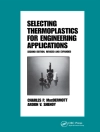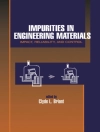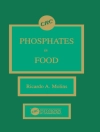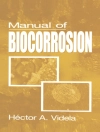This book highlights the importance of Facilitated Transport Membranes (FTMs) for the application of carbon capture, covering its introduction, gas transport phenomena and models, reaction mechanisms, industrial applications such as bio-gas upgradation, flue gas separation, hydrogen gas and natural gas purification, fabrication methods of both FTMs and their carrier mediums, testing/characterization techniques, techno-analysis with up-to-date trends and the future outlooks. Climate change and environmental impacts are resulted due to greenhouse gases, particularly CO2. The industrial revolution is currently causing the augmented emission of greenhouse gases. Therefore, various technologies are being looked at to overcome these problems. In which, membrane technology is key among them and is envisaged for many industrial applications, especially for gas separations and carbon capture. Considering this, FTMs are being actively investigated due to their remarkable gas separation performance.
This book describes the working principle of FTMs and includes case studies to explore their impact on different industrial applications. Also, the book highlights how FTMs are reshaping science to capture CO2 for reducing climate and environmental impacts.
Mục lục
Introduction.- Facilitated Transport Membranes (FTMs) Gas Transport Models and Reaction Mechanisms.- Fabrication and Characterization of FTMs and Design of Membrane Systems.- Parametric Study of CO
2 Capture through FTMs.- FTMs for Natural Gas Purification (CO
2/CH
4).- FTMs for Bio-gas Purification (CO
2/CH
4).- FTMs for Syn-gas Purification (CO
2/H
2).- FTMs for Carbon capture from Flue gas (CO
2/N
2).- Robeson Curve of FTMs for Carbon Capture.- CO
2 gas storage and utilization.- Techno-economics analysis.- Current Challenges and Future Trends.
Giới thiệu về tác giả
Dr. Sarah Farrukh is working as an Associate Professor at the School of Chemical and Materials Engineering (SCME) and Founding Leader of the Membrane for Advance Research Laboratory (MEMAR Lab.) at the National University of Science and Technology, Pakistan (NUST). She has worked for more than six years in academia and research, with experience in some of the leading technologies such as clean energy, clean environment using techniques i.e. Synthesis, functionalization, characterization, physiochemical and parametric analysis of advanced porous and membrane materials. Her focus is on bringing evolving technologies to an advanced level such as carbon negative materials, CO2 capture, hydrogen storage and renewable energy. She has authored/co-authored >60 indexed publications and >7 book chapters. Her work has been cited >700 times with an h-index of 16 and an i10-index of 23. Furthermore, she has submitted 3 national patents and published one book titled “Nano Technologyand Generation of Sustainable Hydrogen’ with Springers. She is the recipient of three (3) research fundings from the Higher Education Commission (HEC) of Pakistan and collaborating with various industries. She has supervised Ph D and M.S. students and received “2019 School(SCME) Best Researcher, ‘2018 School (SCME)Best Teacher Award”.












